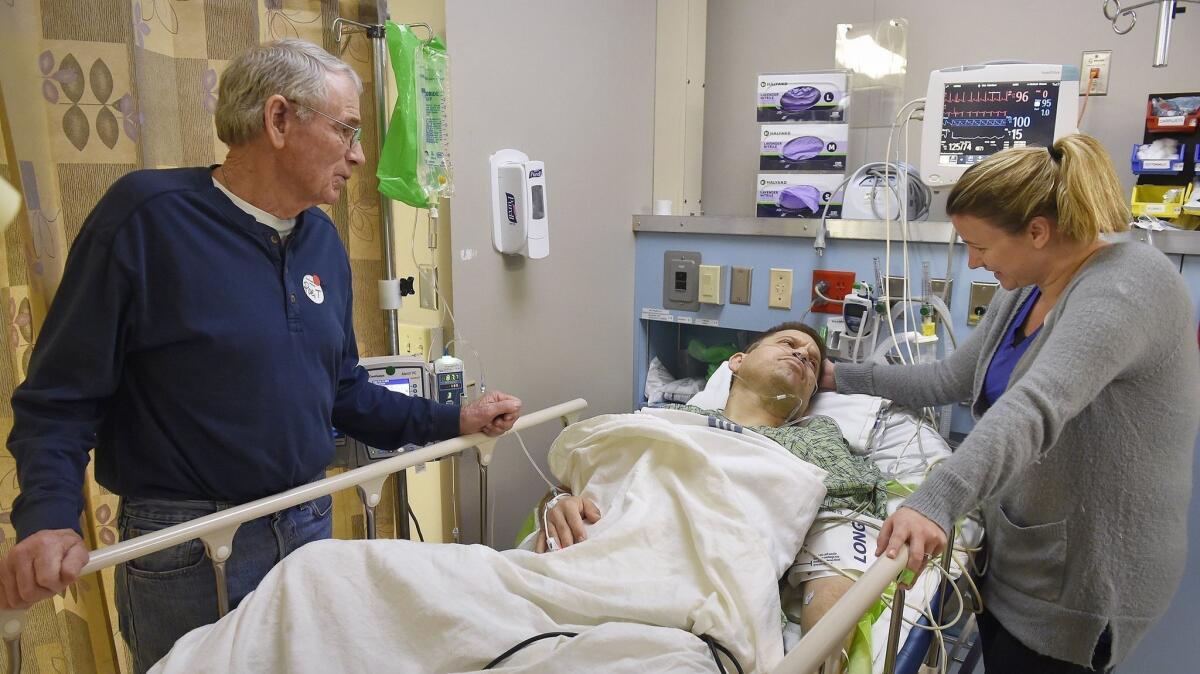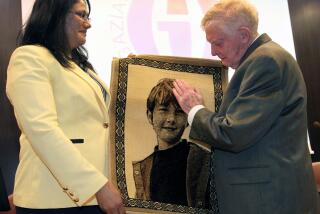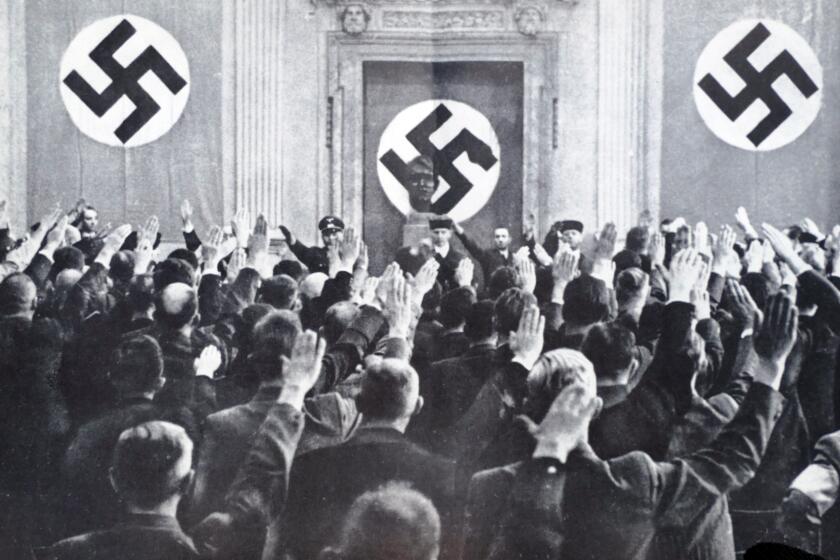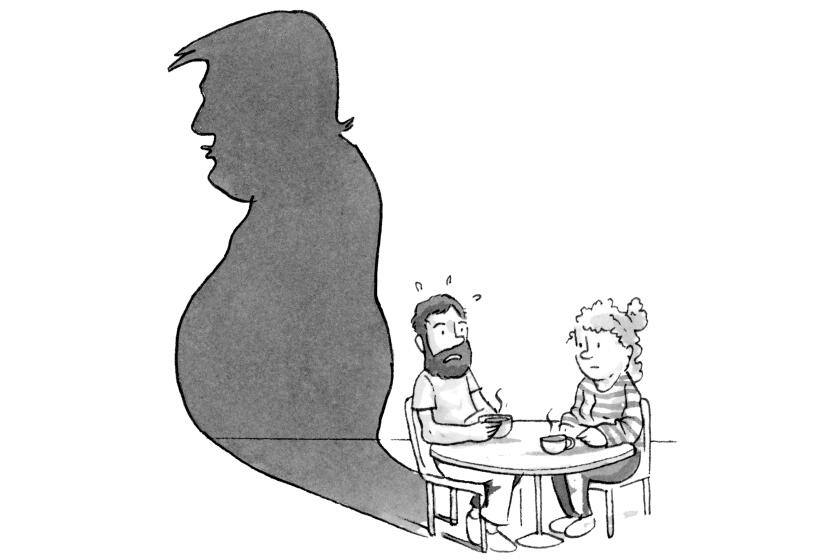Op-Ed: Someone you know needs a kidney. Through a donor exchange, you can make sure they get one

It is extremely unlikely anyone you know will ask you to donate a kidney. So don’t worry, you’re safe. Or are you? It is extremely likely that someone you know needs a new kidney, and that means someone in your life needs you to donate one.
I met B and her mother two years ago. I am a doctor, and they were referred by another physician. B had received a kidney from her father at the age of 2, to address renal insufficiency caused by a congenital condition. Her original transplant was stunningly successful. But in young patients, transplanted kidneys do not last forever. By the time I met B, she was a teenager, and her transplanted kidney’s run was coming to its inevitable end. Renal insufficiency was causing an ocular condition that threatened her vision. She was losing vision, and renal dialysis would be the next step. She was going downhill in every way possible.
About a year after B became my patient, her transplanted kidney failed. Dialysis followed. B’s mother could not donate a kidney. B had no siblings. And her family’s search for a donor was unsuccessful. So I volunteered.
We want the altruistic pleasure of knowing the recipient, and perhaps the pleasure of knowing that the recipient knows us.
After a blood test, urinalysis and a CT scan, I learned that I would not be a good match. B probably would reject my kidney. Somewhere between volunteering to be a donor and being informed that I was not a match, my courage and conviction faltered. Had I been a match, I would have proceeded with the donation. But I was not. It’s difficult to confess, but on some level, I was relieved. I had done my duty by volunteering, but ultimately I had not been called to service. I could therefore rest easy, telling myself I had done everything possible.
But in my heart, I knew I had not: I had not volunteered to participate in a donor exchange. Donor exchanges are programs in which a donor who cannot donate directly to a patient he or she knows instead donates to a different patient, and someone who wants to donate to that second patient, but cannot, donates to the first patient. A chain is established in which pairs of donors and recipients are matched, so that everyone who needs a kidney gets one, and it is the best possible kidney for each recipient.
Sounds great, right? Problem solved? Unfortunately not. It seems that people, myself included, are far more willing to donate a kidney to someone they know over someone they don’t. We want the altruistic pleasure of knowing the recipient, and perhaps the pleasure of knowing that the recipient knows us.
Months passed. I left the area to do research up north. B transferred to the UCLA transplant program. Eventually, I reexamined my decision not to participate in a donor exchange. I came to the conclusion that I was selfish and fearful. I decided that I did not want to be these things. I decided to accept the reality that B needed a new kidney, and that if no one else was able to donate one to an exchange, I would.
A month after surgery, B’s new kidney is working great. She looks and feels like a different person. Her vision has improved. I was a little sore for the first couple of weeks, but I’m now back to normal. Actually, I lost a few pounds and have started exercising. I’m stronger than I was before the surgery.
There are many reasons to donate, or perhaps many manifestations of a single reason: The things we do now will echo in eternity, as Marcus Aurelius tells us. Kidney donation exemplifies this concept perfectly. Personally, I did it for love. I love all my patients, even if occasionally I do not like them. By extension, I love anyone who is able to help one of my patients. This means everyone on the UCLA kidney transplant team. And it means my counterpart in the donor exchange program, a person I may never meet, but who was willing to do something extraordinary for someone he or she loved.
If you want to donate a kidney, there are donor exchange programs that will assist and stand by you every step of the way. Do not wait to be asked. The request probably will never come.
Terry Wood is a neuro-ophthalmologist in Portland, Ore.
Follow the Opinion section on Twitter @latimesopinion or Facebook
More to Read
A cure for the common opinion
Get thought-provoking perspectives with our weekly newsletter.
You may occasionally receive promotional content from the Los Angeles Times.










